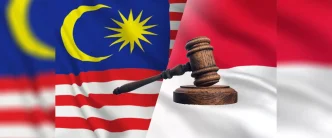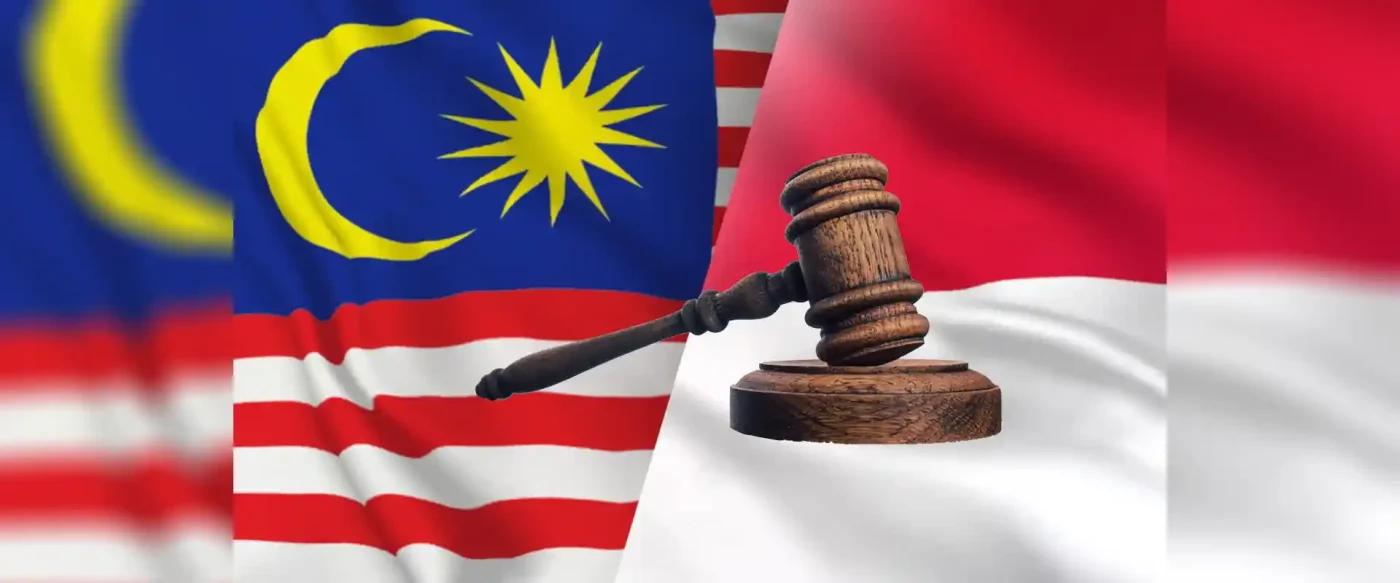Indonesia is weighing its options, including a potential challenge at the World Trade Organization (WTO), after Malaysia imposed a steep antidumping duty on Indonesian plastic goods. The decision, which targets polyethylene terephthalate (PET)—a material widely used in packaging and textiles—has raised alarms about the impact on Indonesia’s domestic industries and the broader dynamics of intra-ASEAN trade at a time of global economic uncertainty.
Malaysia’s Antidumping Move
On May 7, 2025, Malaysia’s Ministry of Investment, Trade and Industry (MITI) announced a five-year antidumping duty on PET imports from Indonesia and China, following an investigation launched in August 2024. The probe, initiated after a petition from a local producer, concluded that PET from these countries was being sold in Malaysia at prices below those in their domestic markets, harming Malaysian manufacturers. Indonesian exports now face a hefty 37.4 percent duty, while Chinese imports are subject to tariffs ranging from 2.3 to 11.7 percent. The duties are set to remain in place until May 6, 2030.
In a statement, MITI emphasized that the decision was based on evidence of “material injury” to Malaysia’s domestic PET industry. The move reflects a growing trend of countries using trade remedies to protect local markets amid volatile global economic conditions. For Malaysia, safeguarding its industrial base appears to take precedence, even as the decision risks straining ties with a key regional partner.
Indonesia’s Response and Potential WTO Action
Indonesia’s Trade Ministry has signaled it is closely monitoring the situation, with officials hinting at possible legal action through the WTO if procedural or substantive issues are identified. Djatmiko Bris Witjaksono, director general of international trade negotiations at the ministry, told a local outlet on May 8, 2025, that the government was assessing Malaysia’s policy and would take appropriate steps “if legal action at the WTO is deemed necessary”.
Trade experts in Jakarta have urged swift and decisive action. Krisna Gupta, a senior fellow at the Center for Indonesian Policy Studies (CIPS), argued that Indonesia should request the full investigation results from Malaysia and engage in immediate consultations with MITI before escalating the matter to the WTO. “We definitely don’t agree” he said, acknowledging that while antidumping measures are permissible under international trade rules, the specifics of this case warrant scrutiny.
Others, however, see deeper systemic issues at play. Andry Satrio Nugroho, head of the trade, industry, and investment center at the Institute for Development of Economics and Finance (Indef), criticized the Indonesian government for what he described as inadequate support for the domestic PET sector. He pointed to a lack of proactive measures to counter dumping allegations over the past year, leaving producers vulnerable both at home and abroad. “The absence of protective policies has made it harder for local manufacturers to compete” he said, warning that the new duties could further limit export opportunities.
Impact on Indonesia’s Petrochemical Industry
The imposition of the 37.4 percent duty by Malaysia—a significant market for Indonesian PET exports—threatens to exacerbate existing challenges for the country’s petrochemical sector. PET, a transparent thermoplastic polymer, is a critical downstream product used in everything from beverage bottles to synthetic fibers. Industry analysts caution that the duty could trigger a ripple effect, stifling export revenues and potentially leading to layoffs in an already struggling sector.
Andry from Indef highlighted additional concerns about transshipment practices, suggesting that some PET labeled as Indonesian may originate from China, routed through Indonesia to bypass stricter tariffs elsewhere. If confirmed, such practices could undermine Indonesia’s case against Malaysia, complicating efforts to challenge the duty. He urged the government to investigate these allegations thoroughly and build a robust evidence base to present to international bodies like the WTO.
Domestically, the situation has reignited debates over Indonesia’s own trade policies. In 2018, the Trade Ministry proposed antidumping duties on PET imports from Malaysia, China, and South Korea, but the plan stalled due to fears of price hikes in the food and beverage sector. Critics argue that this hesitation left local producers exposed, unable to compete with cheaper imports while now facing export barriers abroad.
Regional Implications Amid Global Pressures
Beyond the immediate economic fallout, Malaysia’s decision has sparked concerns about its impact on intra-ASEAN trade and regional solidarity. The Association of Southeast Asian Nations (ASEAN) has long promoted economic integration as a buffer against global trade disruptions, such as the sweeping US import tariffs announced in April 2025. Indonesia has previously called for stronger intra-ASEAN trade to counter such external pressures, while maintaining dialogue with Washington to mitigate bilateral tensions.
However, trade remedies like antidumping duties—while legal under frameworks like the WTO and the General Agreement on Tariffs and Trade (GATT)—can challenge regional cohesion. Andry from Indef noted that diverging national interests within ASEAN often hinder collective responses to global trade challenges. “Dialogue should be prioritized before taking any measures like retaliation” he said, emphasizing the need for ongoing coordination to address policies that could harm member states.
Interestingly, the trade spat comes on the heels of diplomatic engagements between the two nations. Just days before the duty was announced, Malaysian Prime Minister Anwar Ibrahim and Indonesian President Prabowo Subianto reaffirmed their commitment to comprehensive bilateral cooperation during a phone call on May 4, 2025. Anwar also joined a joint discussion with leaders from Brunei and Laos on April 30, stressing a unified ASEAN approach to safeguard the region’s economic resilience against external tariffs. Despite these overtures, Malaysia’s unilateral trade action suggests that national priorities can still override regional aspirations.
Broader Context of Trade Remedies
Antidumping duties are not new to either Indonesia or Malaysia, both of which have employed such measures in the past to protect domestic industries. Krisna from CIPS pointed out that these mechanisms are standard tools within international trade law, designed to level the playing field when foreign goods are sold at unfairly low prices. As such, Malaysia’s decision does not inherently signal hostility toward Indonesia, but rather a focus on safeguarding its own economic interests.
Nevertheless, the timing of the duty—amid heightened global trade tensions and US tariff policies—adds a layer of complexity. ASEAN nations face mounting pressure to balance internal economic needs with the bloc’s collective goal of economic integration. For Indonesia, the challenge lies in defending its PET industry without escalating tensions with a key neighbor, all while navigating a fraught international trade landscape.
Looking Ahead
As Indonesia deliberates its next steps, the outcome of this trade dispute could set a precedent for how ASEAN members address economic disagreements in the future. A successful challenge at the WTO might embolden other nations to contest similar duties, while a failure to act could weaken Indonesia’s position in regional trade negotiations. For now, stakeholders in Jakarta are calling for a measured approach, prioritizing evidence-gathering and dialogue over hasty retaliation.
At the heart of the issue lies a broader question: can ASEAN maintain its vision of economic unity when national interests clash? With global trade pressures showing no signs of abating, the answer may shape the region’s economic trajectory for years to come.
















